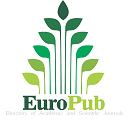Respon Fisiologis dan Produksi Susu Sapi Perah FH pada Pemberian Rumput Gajah (Pennisetum purpureum) dengan Ukuran Pemotongan yang Berbeda
Abstrak
Fresh milk production in the country has not been able to fullfill national needs due to low productivity of livestock. Animal feed and mode of administration in accordance with the needs of livestock can support livestock productivity . Provision of superior grass cut without causing a lot of wasted parts , cutting the size to see the physiological responses of cattle and increase feed intake and increased milk production . The study was conducted in July-October 2013 in the Laboratory of Field Husbandry IPB using first lactation dairy cows four tails . The design used is RBSL and analyzed by ANOVA on the four- stage treatment with physiological responses , intake and milk production as observed variables .The results showed that stable conditions and environmental stress could potentially cause mild to moderate stress ( THI : 68-90 ) . Size grass clippings do not significantly affect the response of heart rate and respiration rate with the highest value on the size of the piece 10 cm each - respectively 71.7 ± 3.4 beats / min ; 44.6 ± 5.5 beats / min compared to the size of the control pieces , 5 cm and 15 cm . Rectal temperatures were statistically significantly different from the size of the pieces of 5 and 10 cm higher than the control and 15 cm . However, the surface temperature and body temperature were not significantly different . Treatment is not real grass cutting its effect on feed intake and milk production ( P> 0:05 ) .
Based on the research it can be said that the grass- cutting measure physiological responses of cattle does not affect the size of the cuts but can increase feed intake LB 0.2-0.9 kg / head / day and milk production of 0.2-0.5 liters per day as well as the efficiency of milk protein by 2.3 - 3.1 %
Unduh
##plugins.generic.usageStats.noStats##
Diterbitkan
2017-03-11
##submission.howToCite##
NoviantiJ., PurwantoB. P., & AtabanyA. (2017). Respon Fisiologis dan Produksi Susu Sapi Perah FH pada Pemberian Rumput Gajah (Pennisetum purpureum) dengan Ukuran Pemotongan yang Berbeda. Jurnal Ilmu Produksi Dan Teknologi Hasil Peternakan, 1(3), 138-146. Diambil dari https://journal.ipb.ac.id/index.php/ipthp/article/view/15542
Bagian
Articles















